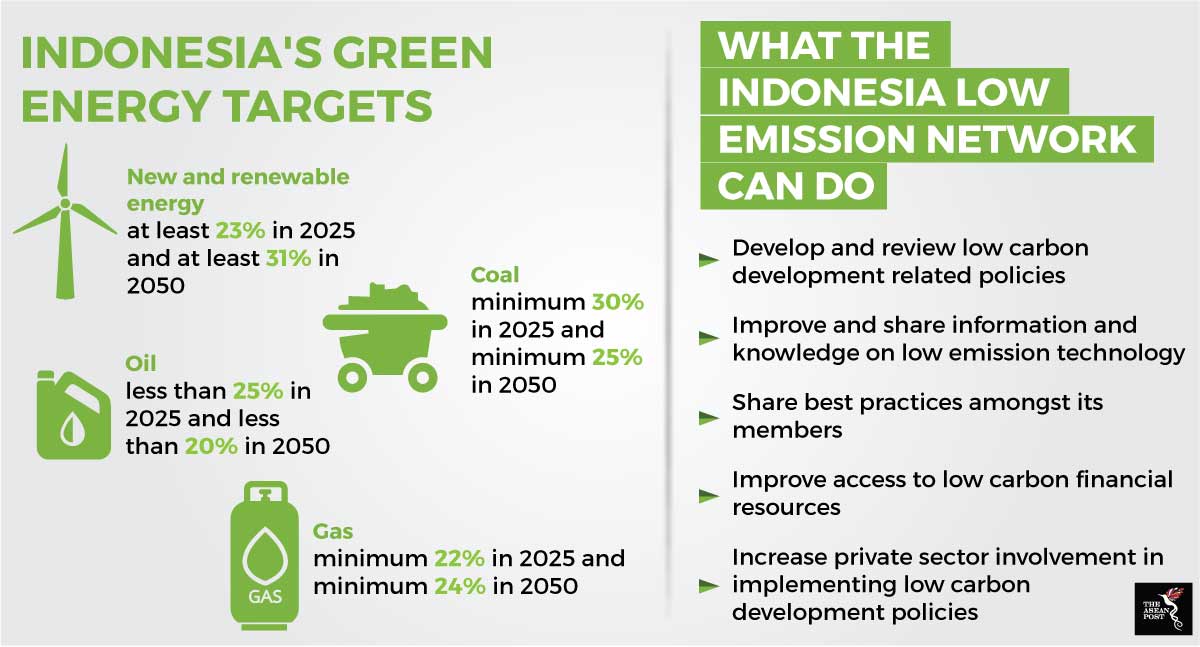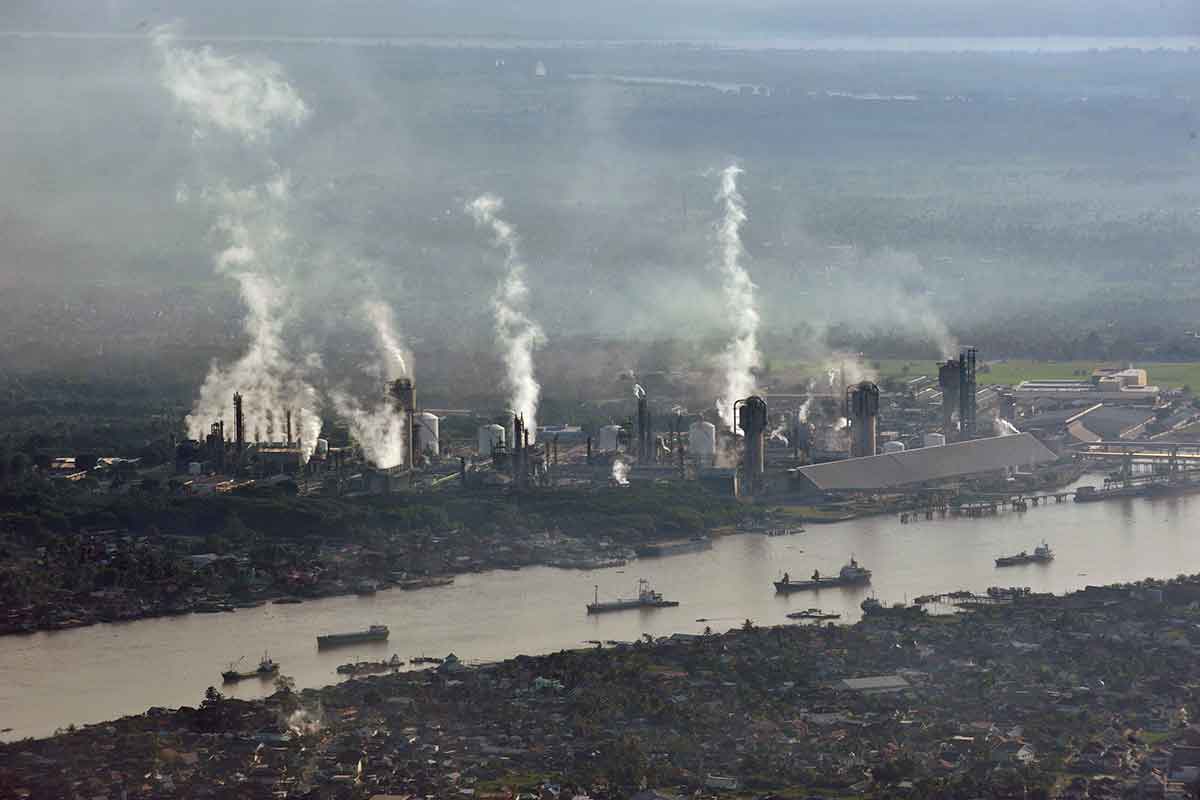The newly-launched Indonesia Low Emissions Network (ILEN) has boosted the country’s aspirations of fulfilling its climate change goals as it moves to create a cleaner future.
The first network for climate change implementation in Indonesia, the ILEN – which was unveiled in Jakarta by NGO Green Partner Foundation on Tuesday – aims to improve and share information and knowledge on low emissions technology and best practices amongst its members comprising of government agencies, private companies and NGOs.
Set to strengthen partnerships between state and non-state actors and to help the government develop and review low carbon development related policies, the self-funded ILEN also hopes to improve access to low carbon financial resources and increase private sector involvement in implementing low carbon development policies in Indonesia.
Comprising of government agencies such as the Ministry of National Development Planning and the Peatland Restoration Agency as well as industrial giants such as state-owned oil and gas corporation Pertamina and the country’s largest cement maker, Semen Indonesia, the ILEN has also attracted attention from financial institutions, investment funds, civil society organisations (CSOs), scientists, academics, field practitioners, educators and community leaders.
‘The earth cannot wait any longer to be healed’
The wide range of stakeholders is proof that in Indonesia, low emissions development is seen as not just an issue which concerns the government but rather the wider public.
“Every effort that comes from state and non-state actors to reduce greenhouse gas (GHG) emissions would be very much appreciated,” said Prof Rachmat Witoelar, Indonesia President’s Special Envoy for Climate Change.
“We do not have the luxury of time for emissions reduction; the earth cannot wait any longer to be healed,” said Prof Rachmat at the ILEN launch.
Prof Bambang Brodjonegoro, Indonesia’s Minister of National Development Planning, was also at the launch in a strong show of support by Indonesia’s government for the ILEN initiative.
Another high-profile climate change figure at the event was Christiana Figueres, former Executive Secretary of the United Nations Framework Convention On Climate Change (UNFCCC) who said the ILEN was a “real opportunity for Indonesia to more deeply embed a low-emissions pathway in its medium and longer-term development plans.”
 Source: Various
Source: Various
Reaching targets through better collaborations
In 2010, Indonesia voluntarily pledged to reduce emissions by 26 percent and up to 41 percent with international support, against a business as usual trajectory, by 2020. By 2030, the target for the former rises to 29 percent.
However, achieving the emissions reduction target is a complex task at both, the national and local levels. With limited resources, the Indonesian government needs non-government entities actors to play their part – which is where the ILEN comes in.
It can perhaps follow the example of the Paris Agreement, where collaboration across sectors was fundamental to reaching an agreement in 2015 which has since been signed by 195 countries. The Paris Agreement aims to limit global temperature increases to below two degrees Celsius by 2100 and no more than 1.5 degrees Celsius, if at all possible.
Taking a leaf out of that book, the ILEN will help facilitate collaboration among the numerous stakeholders in Indonesia and promote open discussion and the formulation of sustainable low emissions development plans. This must be done hand-in-hand with stable economic growth – which Indonesian President Joko “Jokowi” Widodo has set at 5.3 percent for this year.
Indonesia’s economy has traditionally relied heavily on agriculture and forestry, which has been blamed for deforestation and forest fires. It is the world’s fifth largest GHG emitter according to a 2017 study by the World Resources Institute and is actively seeking to reduce emissions in the land use sector.
In 2011, it issued a moratorium on the clearing of primary forests in a bid to reduce forest fires. As the world’s biggest producer of palm oil, much of Indonesia’s deforestation is blamed on the clearing of land for the cash crop and other agricultural activities.
However, the energy sector is a bigger GHG pollutant and the share of renewable electricity production has remained relatively static.
“Any network that promotes environmental and climate friendly development should be supported, and we will use the ILEN to focus on building awareness about these two issues as it brings benefits not only to Indonesians but also our neighbours,” said Hizbullah Arief, founder of Hijauku.com, an online portal dedicated to the green economy and sustainable development in Indonesia and the only media company which is part of the ILEN.
“Indonesia is struggling to move beyond fossil fuels and our renewable energy target is still low. Indonesia targets a 23% share of renewable energy by 2025. However, only less than 7.4% has been achieved so far,” he added.
With the World Economic Forum last month describing climate change as the second biggest threat facing humanity today after natural disasters, efforts such as the ILEN will help ASEAN go a long way in addressing an issue which can only be resolved with the deeper collaboration of all stakeholders.
Related articles:
An optimist’s guide to climate change
ASEAN’s role in realising the Paris Agreement
Facing up to dwindling oil and gas resources
